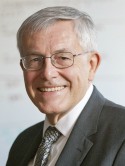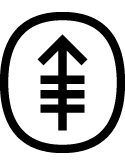Phase I trial with pharmacokinetic analyses of high-dose carboplatin, etoposide, and cyclophosphamide with autologous bone marrow transplantation in patients with refractory germ cell tumors Journal Article
| Authors: | Motzer, R. J.; Gulati, S. C.; Tong, W. P.; Menendez-Botet, C.; Lyn, P.; Mazumdar, M.; Vlamis, V.; Lin, S.; Bosl, G. J. |
| Article Title: | Phase I trial with pharmacokinetic analyses of high-dose carboplatin, etoposide, and cyclophosphamide with autologous bone marrow transplantation in patients with refractory germ cell tumors |
| Abstract: | Thirty patients with cisplatin-refractory germ cell tumor were treated with high-dose carboplatin, etoposide, and cyclophosphamide and autologous bone marrow transplantation. The total dose of carboplatin was 1500 mg/m2, etoposide 1200 mg/m2, and cyclophosphamide was increased by increments from 60 to 150 mg/kg. Twenty-five cycles of treatment, given to 17 patients, did not include granulocyte-colony stimulating factor (G-CSF). Nineteen cycles of high-dose chemotherapy, given to 13 patients at the 2 highest dose levels of cyclophosphamide, included G-CSF. The dose of cyclophosphamide was escalated to 150 mg/kg/cycle without prohibitive toxicity. The use of G-CSF resulted in a shorter duration of neutropenia (P = 0.07); the median number of days until the recovery of an absolute granulocyte count >0.5 was 25 without G-CSF and 14 with G-CSF. The most frequent nonhematological toxicity was hepatic, and there were 2 (7%) treatment-related deaths. Thirteen (43%) patients achieved a complete response, and 8 are alive and free of disease (27%); 7 are in continuous complete response (23%), and 1 after resection of a solitary site of disease following a relapse after high-dose chemotherapy. Five patients had pharmacology studies performed to determine the area under the curve (AUC) of free and total platinum, carboplatin, etoposide, cyclophosphamide, and phosphoramide mustard. There was a decrease in the AUC of cyclophosphamide and an increase in the AUC of phosphoramide mustard, the “active” metabolite, with successive days of treatment The interpatient variability of the AUC of cyclophosphamide/phosphor-amide mustard that was demonstrated was most likely a result of each individual's metabolic capacity. The measured AUC of carboplatin and/or free platinum closely approximated the predicted AUC of carboplatin calculated by renal function in 3 of the 5 patients. In summary, cyclophosphamide administered at a dose of 50 mg/kg x 3 days was achieved with acceptable toxicity, and no further dose escalation is planned. High-dose carboplatin, etoposide, and cyclophosphamide achieved a 23% continuous complete response proportion (27% alive, free of disease) when used as third-line therapy in germ cell tumor patients refractory to cisplatin + ifosfamide-based chemotherapy. Ongoing studies are addressing the role of high-dose carboplatin-containing chemotherapy in previously untreated patients with poor prognostic features or as a part of first-line salvage. © 1993, American Association for Cancer Research. All rights reserved. |
| Keywords: | adolescent; adult; cancer chemotherapy; cancer survival; clinical article; aged; dose response; drug efficacy; combined modality therapy; ovarian neoplasms; carboplatin; liver toxicity; etoposide; antineoplastic combined chemotherapy protocols; drug administration schedule; cyclophosphamide; drug effect; testicular neoplasms; remission induction; neoplasms, germ cell and embryonal; retroperitoneal neoplasms; phase 1 clinical trial; tumor growth; bone marrow transplantation; germ cell tumor; mediastinal neoplasms; dose calculation; autologous bone marrow transplantation; prognosis; human; male; female; priority journal; article; support, non-u.s. gov't; support, u.s. gov't, p.h.s. |
| Journal Title: | Cancer Research |
| Volume: | 53 |
| Issue: | 16 |
| ISSN: | 0008-5472 |
| Publisher: | American Association for Cancer Research |
| Date Published: | 1993-08-15 |
| Start Page: | 3730 |
| End Page: | 3735 |
| Language: | English |
| PUBMED: | 8393380 |
| PROVIDER: | scopus |
| DOI/URL: | |
| Notes: | Source: Scopus |
Citation Impact
MSK Authors
Related MSK Work







